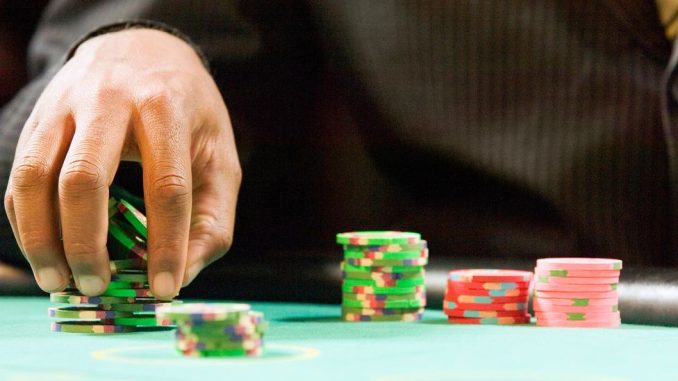
The allure of potential riches and the excitement of taking risks can be captivating in the gambling world. However, one puzzling question remains: why do people continue to gamble even after experiencing significant losses? It’s a complex phenomenon attributed to various psychological, social, and cognitive factors. In this article, we delve deep into the intricacies of human behavior and explore the reasons behind this intriguing phenomenon.
The Thrill of Chasing the Next Win
One of the primary reasons why individuals continue to gamble after losses are the thrill of chasing successive wins. Gambling activates the brain’s reward system, releasing dopamine and creating a pleasurable sensation. Even when faced with consecutive losses, the hope of a future victory becomes a powerful motivator. Expecting a big win stimulates excitement, triggering a desire to continue gambling.
The Gambler’s Fallacy and Illusion of Control
The Gambler’s Fallacy, a cognitive bias, also significantly perpetuates gambling behavior after losses. This fallacy is the belief that previous outcomes will influence future results, despite statistical probabilities. For example, if someone loses a few game rounds, they may convince themselves that a win is imminent due to the perceived balance or “due” factor. This illusion of control can be misleading and lead to prolonged gambling sessions.
Escapism and Emotional Relief
Gambling can serve as escapism for individuals facing stress, anxiety, or other emotional challenges. It offers a temporary respite from real-life problems, allowing individuals to immerse themselves in the excitement and unpredictability of the gambling environment. Even when confronted with losses, the momentary distraction and the accompanying rush of adrenaline can provide emotional relief, albeit short-lived.
Social Factors and Peer Influence
The social aspect of gambling can strongly influence individuals to continue gambling despite losses. In some cases, people may engage in gambling activities to socialize with friends or seek social acceptance. The desire to fit in or maintain one’s social image can override the negative consequences of losing, leading individuals to persist in their gambling behavior.
Biological Factors and Addiction
The continuous pursuit of the elusive win, even in the face of mounting losses, can be attributed to the compulsive nature of addiction. For a subset of individuals, gambling may escalate from a recreational activity to a full-fledged addiction. This shift is often associated with underlying biological factors and a predisposition towards addictive behaviors. The neurological changes in the brain further reinforce the urge to gamble, making it difficult for individuals to resist the impulse.

The Role of Near Misses
Another psychological aspect that keeps people gambling after losing is the occurrence of near misses. These are instances where individuals come close to winning but must catch up. Near misses activate the brain’s reward system similarly to actual wins, generating a sense of hope and excitement. This near-win experience convinces individuals that they are getting closer to a successful outcome, further fueling their motivation to keep gambling.
Cultural and Environmental Factors
Cultural and environmental factors can also contribute to the persistence of gambling after losses. In societies where gambling is widely accepted or glorified, individuals may feel societal pressure to continue gambling, regardless of losses. The availability and accessibility of gambling opportunities can also play a role. If gambling establishments are easily accessible, individuals may find it challenging to resist the temptation to try their luck again, even after experiencing losses.
Seeking Professional Help
Understanding why people continue to gamble after losing is crucial in addressing potential gambling-related problems. If you or someone you know is struggling with excessive gambling or showing signs of addiction, seeking professional help is essential. Trained counselors and therapists can provide guidance and support in overcoming gambling addiction. They can help individuals develop healthier coping mechanisms, explore underlying emotional issues, and provide strategies to break the cycle of compulsive gambling.
Conclusion
The reasons why people continue to gamble after experiencing losses are multi-faceted and interconnected. Various elements contribute to this perplexing behavior, from the thrill of chasing a win to the illusion of control, emotional relief, social influence, and biological factors. Understanding these factors can help individuals and loved ones recognize the signs of problematic gambling and seek appropriate support.
It is essential to approach gambling responsibly and make informed decisions. Setting limits on time and money spent gambling, seeking alternative recreational activities, and being aware of the potential risks associated with gambling can help individuals maintain a healthy relationship with this form of entertainment.
Remember, if gambling starts to negatively impact your life or the lives of those around you, seeking professional assistance is crucial. There is no shame in reaching out for help; dedicated resources are available to guide you toward recovery and a healthier future.

Leave a Reply